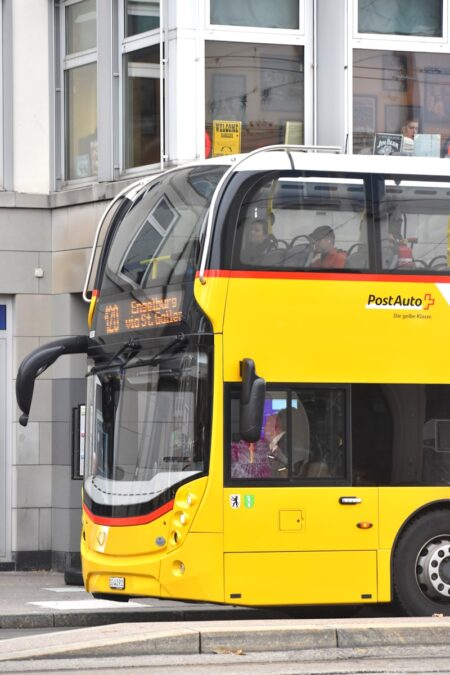Revolutionizing Commute and Traffic Management with Cutting-edge Technology
Smart Transportation Systems are transforming the urban landscapes of Dubai and Riyadh into models of efficient and innovative mobility. These systems leverage the latest advancements in technology to enhance the daily commute for millions of residents and visitors.
Integrating Advanced Technologies for Traffic Optimization
At the heart of smart transportation systems in Dubai and Riyadh is the integration of advanced technologies such as Artificial Intelligence (AI) and the Internet of Things (IoT). These technologies facilitate real-time traffic management, significantly reducing congestion and improving travel times. For instance, AI algorithms analyze traffic data to predict patterns and automatically adjust signal timings to optimize traffic flow. This proactive approach not only speeds up commutes but also contributes to a reduction in vehicle emissions, supporting environmental sustainability goals.
Enhancing Public Transit with Smart Solutions
In addition to improving road traffic, smart transportation initiatives in Riyadh and Dubai encompass enhancements to public transit systems. Modern buses and trains equipped with IoT sensors provide operators and passengers with up-to-the-minute information on schedules and seat availability, while mobile apps offer personalized travel suggestions that optimize time and cost. The integration of blockchain technology also promises more secure and efficient payment systems, streamlining the user experience for daily commuters.
Creating Safer Urban Environments
Safety is a paramount concern in urban mobility, and smart transportation systems address this issue head-on. In Dubai and Riyadh, surveillance systems equipped with AI-enhanced cameras monitor traffic conditions and detect potential hazards, alerting authorities to incidents before they escalate. Additionally, pedestrian safety is enhanced through intelligent crosswalks that use sensors to manage crossing signals based on real-time pedestrian traffic, drastically reducing accidents and improving pedestrian confidence in urban spaces.
Driving Economic Growth Through Efficient Mobility
Efficient transportation is a key driver of economic growth, and the smart transportation systems in Dubai and Riyadh are prime examples of this principle in action. By reducing travel times and transportation costs, these systems free up individual time and resources for more productive uses. Businesses benefit from the improved logistics and accessibility, which in turn attracts international investment and fosters a dynamic economic environment.
Supporting Sustainability in Urban Transport
Smart transportation systems also play a critical role in promoting sustainability. By optimizing route planning and reducing idle times, these systems lower the overall carbon footprint of urban transport. Electric buses and solar-powered traffic signals are becoming more commonplace in Riyadh and Dubai, marking a significant step towards achieving these cities’ ambitious sustainability targets.
Building Intelligent Parking Solutions
Another significant aspect of smart transportation systems is the development of intelligent parking solutions in cities like Dubai and Riyadh. These systems utilize IoT sensors and AI to monitor parking patterns and guide drivers to the nearest available spot, significantly reducing the time spent searching for parking. This not only eases driver frustration but also decreases traffic congestion caused by vehicles circling for parking. Moreover, integrated payment systems ensure that parking fees are calculated with precision and paid effortlessly, enhancing the overall user experience.
Improving Connectivity with Smart Traffic Management
Smart traffic management systems form the backbone of the smart transportation infrastructure in Riyadh and Dubai. By using AI to analyze live traffic data collected from cameras and sensors on roads and at intersections, these systems can dynamically control traffic lights and signages to prevent bottlenecks and enhance flow efficiency. This high level of connectivity and responsiveness in traffic management significantly improves commuting times and reduces the likelihood of accidents, showcasing the practical benefits of smart urban planning.
Fostering Public Engagement Through Technology
Public engagement is critical in shaping effective and sustainable urban transportation policies. In Riyadh and Dubai, smart transportation systems include interactive platforms that allow residents to provide feedback on traffic conditions and public transit services. This two-way communication channel helps city administrators to gather valuable insights from the very people who use the infrastructure daily, leading to more targeted and effective improvements. Additionally, regular updates and information sessions via social media and mobile apps keep the public informed and involved in ongoing transportation projects.
Future Prospects: AI and the Metaverse in Urban Mobility
The future of urban mobility looks even brighter with the potential integration of AI and the Metaverse into transportation systems. Imagine virtual reality platforms that allow city planners in Dubai and Riyadh to simulate and optimize traffic scenarios in real-time, or AI-driven personal assistants that help residents choose the best transportation modes based on weather, traffic, and personal schedules. These innovations are set to redefine the boundaries of what is possible in urban transport.
#SmartTransportation, #UrbanMobility, #SaudiArabia, #UAE, #Riyadh, #Dubai, #AI, #Blockchain, #Metaverse, #GenerativeAI, #ExecutiveCoaching, #LeadershipDevelopment, #ProjectManagement, #BusinessSuccess, #EffectiveCommunication









